Protect board game
Board game patent registration
Very, very few board games can be protected by patents. Whereas, the US accepts patents for “a method of playing a game”, this category is specifically excluded from being patented in most other countries (including South Africa).
Tip: don’t waste time and money patenting your board game. Rather focus on trademarks and designs.

For helpful tips on protecting Board Games, see Iptica’s website ‐ get Patent, Design and Trademark Pending Numbers for only US$99. Also see our provisional patent drafting and filing guide.
Board game trademark registration
Most board games are protected exclusively by trademarks. A trademark registration prevents others from using a “confusingly similar” name in respect of their game.
Start by checking that there are no conflicting trademarks already on the register. The cost to conduct a South African board game trademark registrability search is R2,500 plus vat. Thereafter, file a South African trademark for only R4,090 plus vat. The process takes 1-2 weeks, and you can use your mark in the meantime. We can even start the trademark process after you have started selling your board game.
If you pay your trademark renewal fees, your trademark can remain in force forever – that is a long time to keep receiving royalties.
Tips:
- Don’t use descriptive marks, e.g. “real estate game”. Marks that describe the product cannot be trademark registered, whereas MONOPOLY is a strong trademark.
- File a trademark registration in class 28 to protect the board game. Also, consider filing trademarks in: class 9 to cover a software version; and class 28 registration for the online version.

Board game design registration
You can protect the shape and pattern of your board by filing a South African design registration. No prior search is required. We generally suggest filing both Aesthetic and Functional designs through GlobalIPCo at a cost of $299 per design.
The design registration(s) will prevent others from making a board that looks “substantially similar” to your board.
Tip: File the design for the board only, not the cards. Also consider designing unique “pieces” – Monopoly extended design registrations to its car, boot, hat, dog, ship and cannon.
Board game copyright
Copyright automatically protects the text on your cards and the artwork on your board. However, it does not prevent others from “recreating” similar cards without “copying”. Read more on “redeveloping” a copyrighted work.
Copyright is free and need not be registered. As soon as you make your game board and cards, these artistic and literary works are automatically protected by copyright.
Copyright generally survives between 50 and 100 years (depending on the country).
Tip: Add the copyright logo on your cards and board “(c) your name, year”.
Board game prototyping
We also prototype board games. For more information, see IdeaPrototype.

Note: NDAs / non-disclosure agreements / confidentiality agreements are useful to protect your idea and design while your board game is “secret”. However, as soon as you launch the game (e.g. make your first sale or upload it on a website), you can tear up all NDAs with manufacturers / designers, as they will have become unenforceable.
